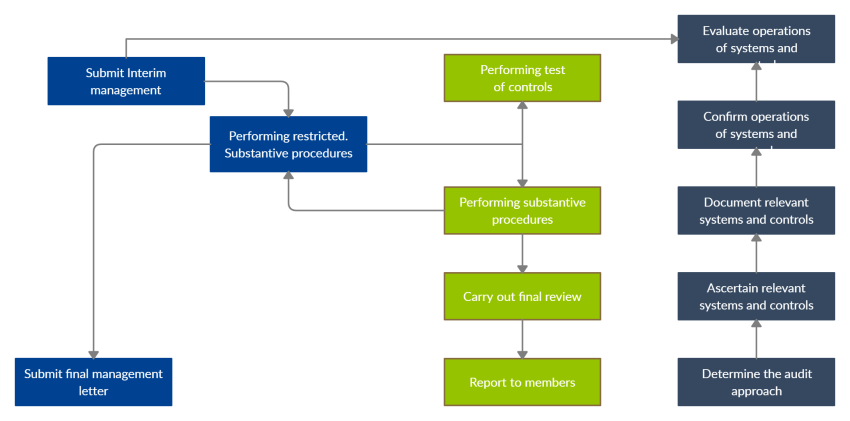Financial compliance and auditing services are essential components of maintaining transparency, accountability, and legal adherence within an organization’s financial activities. By ensuring compliance with industry regulations, financial auditors play a pivotal role in providing stakeholders with confidence in the accuracy and integrity of financial statements. In this article, we will explore the importance and benefits of financial compliance and auditing services.
What is Financial Compliance?
Financial compliance refers to the adherence of an organization to specific laws, regulations, and guidelines related to financial activities. These regulations are established by government bodies and industry authorities to ensure fair practices, investor protection, and prevention of fraudulent activities. Compliance involves strict record-keeping, adherence to accounting standards, and timely reporting.
The Role of Financial Compliance
Financial compliance plays a critical role in maintaining the stability and reputation of an organization. It helps prevent ethical and legal issues, protects investors and shareholders, and promotes confidence in the market. Compliance helps mitigate risks associated with financial activities and provides a framework for consistent and accurate financial reporting.
Benefits of Financial Compliance
1. Risk Mitigation: Compliance activities help identify potential risks and provide guidelines to mitigate them. This reduces the chances of financial fraud, misrepresentation, and other non-compliant activities that may harm the organization.
2. Transparency and Accountability: Compliance ensures that financial transactions are accurately recorded and transparently reported. This fosters trust among stakeholders and improves decision-making for investors, lenders, and regulators.
3. Legal Protection: By adhering to financial regulations, organizations safeguard themselves from legal consequences, fines, and reputational damage. Compliance helps avoid penalties or legal actions that may result from non-compliance.
4. Investor Confidence: Compliance demonstrates an organization’s commitment to ethical practices and safeguards the interests of investors. It contributes to building investor confidence, attracting potential investors, and strengthening existing relationships.
What are Auditing Services?
Financial auditing services involve an independent assessment of an organization’s financial records, transactions, internal controls, and compliance with applicable laws and regulations. Auditors provide an impartial evaluation to ensure the accuracy and reliability of financial statements.
Types of Financial Audits
1. External Audit: Conducted by an independent auditing firm, external audits provide an objective assessment of an organization’s financial statements. They evaluate the fairness, accuracy, and compliance of financial records with accounting standards and applicable regulations.
2. Internal Audit: Internal audits are performed by a company’s internal audit department, ensuring the effectiveness of internal controls, risk management, and compliance with internal policies and procedures. They help identify areas for improvement and enhance operational efficiency.
The Importance of Financial Auditing
Financial auditing holds significant importance for both internal and external stakeholders:
1. Stakeholder Confidence: Audited financial statements provide assurance to stakeholders, such as investors, lenders, and shareholders, about the accuracy and reliability of an organization’s financial position and performance.
2. Compliance Verification: Auditing services verify that a company is complying with applicable laws, regulations, and accounting standards. This helps organizations avoid legal and financial penalties arising from non-compliance.
3. Fraud Detection: Auditors play a crucial role in detecting and preventing fraud within an organization. Through their expertise, they identify irregularities, discrepancies, and potential fraud risks that may have otherwise remained unnoticed.
4. Operational Improvement: Audits highlight areas where financial controls, processes, and operational efficiency can be enhanced. Recommendations provided by auditors help organizations implement best practices and improve overall performance.
Conclusion
Financial compliance and auditing services are fundamental in maintaining transparency, accountability, and legal adherence within an organization’s financial activities. Compliance ensures adherence to regulations and promotes ethical practices, while auditing provides an impartial assessment of financial records and controls. These services not only build stakeholder confidence but also contribute to the long-term stability and success of an organization. By availing financial compliance and auditing services, businesses can safeguard their reputation, avoid legal consequences, and foster trust among investors and shareholders.

